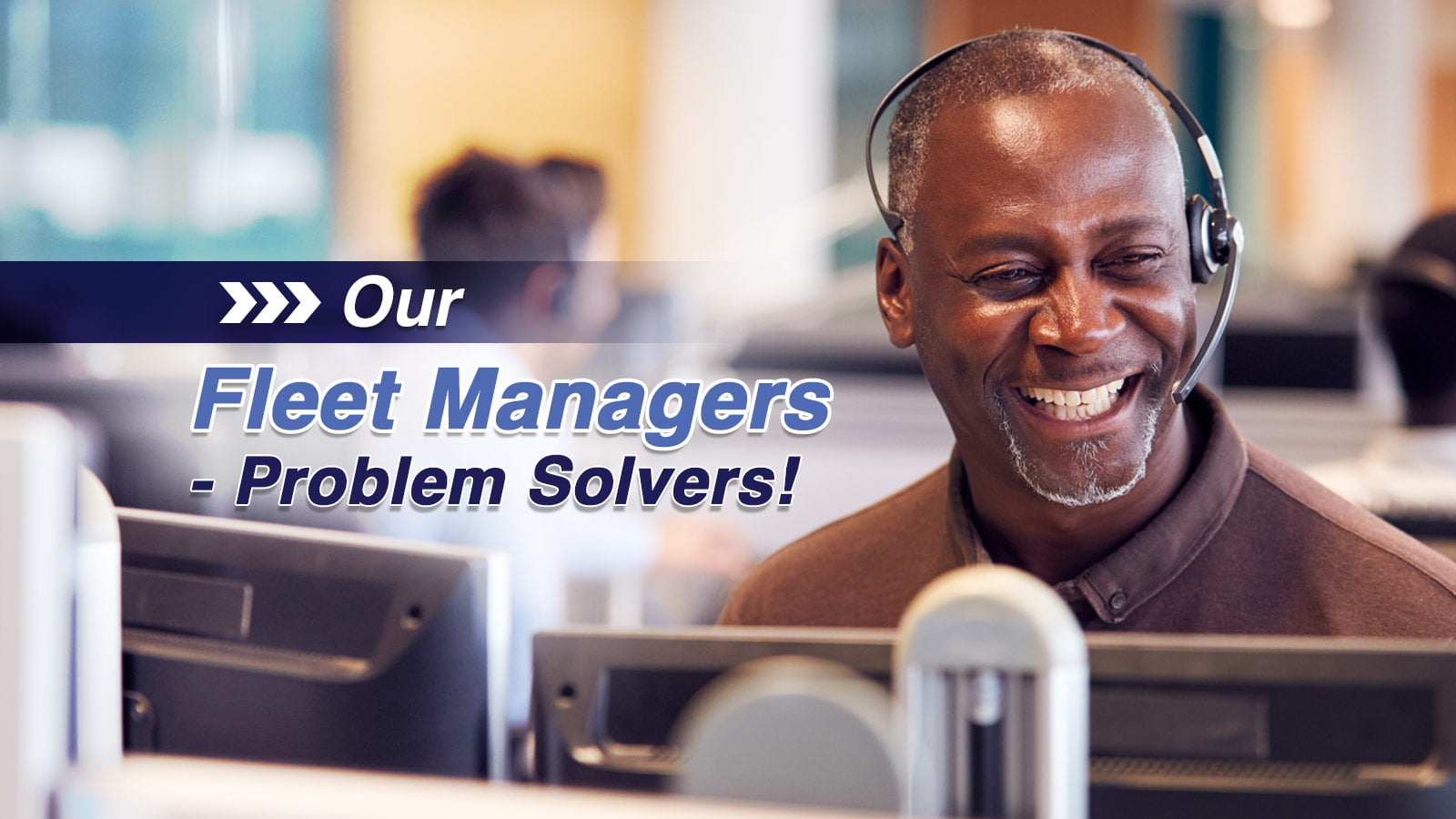Fleet Managers of Super Ego Holding are introducing themselves and helping answer the most common questions and issues our drivers are experiencing!
1. Who are Fleet Managers, and what are their responsibilities?
Fleet Manager is responsible for the truck’s maintenance and sometimes acts as the link between drivers and different departments in the company, helping the drivers on the road in general.
The Fleet Manager is in charge of organizing repairs on the truck, including the following:
- Advising for repairs.
- Organizing roadside service.
- Setting up dealership repairs.
2. What is P.T.I., and why is it important?
A pre-trip inspection is a thorough examination of a semi-truck, its trailer, and all associated equipment before beginning a trip. The primary purpose of a pre-trip inspection is to ensure that the vehicle is in good working condition and safe to operate.
During a pre-trip inspection, the driver will check the truck’s brakes, tires, steering, suspension, lights, horn, mirrors, and other essential systems. The driver will also check the trailer’s coupling and connections, as well as any cargo or equipment that is being transported. Any defects or issues found during the pre-trip inspection must be addressed and corrected before the driver can begin their trip.
3. What should you do when you notice the truck has issues?
If you notice any issues with a semi-truck during a pre-trip inspection or while driving, it is essential to take immediate action. Here are the steps you should follow:
Stop the vehicle: If you notice any serious issues while driving, pull over to a safe location as soon as possible. Do not continue driving if you suspect that the truck may not be safe to operate.
Assess the situation: Once you have stopped, evaluate the issue and determine if it is something you can address yourself, or if you need to seek professional assistance.
Contact your dispatcher or the company to report the issue and seek guidance on what to do next.
4. Whom should I call after the main business hours for repairs?
Super Ego has a 24/7 Call Service to help you out with any issues. If the problem at hand requires repairs on both the truck and the trailer you can call the After Hours Fleet guys using Extension -191-, they will help you with any problems that concern your truck and/or trailer to the best of their abilities.
5. Where is it safe to park the truck and trailer?
When parking a truck and trailer, it is important to choose a safe and legal location. Here are some of our tips on where to park:
Truck stops: Truck stops are specifically designed for commercial vehicles and are usually equipped with amenities such as fuel, food, showers, and restrooms. Most truck stops also have designated parking areas for trucks and trailers.
Rest areas: Rest areas along highways and interstates often have designated parking areas for commercial vehicles. However, some rest areas may have restrictions on how long you can park.
On-site parking: If you are delivering to a specific location, such as a warehouse or distribution center, there may be on-site parking available for your truck and trailer.
It is important to remember that parking a truck and trailer in an unsafe or illegal location can result in fines, damage to the vehicle, and even theft or vandalism. Remember to ALWAYS choose a safe and legal location to park your truck and trailer.
6. What are truck stops and shops for minor repairs that we work with?
- Love’s Travel Stop (best for tire replacements)
- TA Truck Stop (best for mechanical issues)
- Southern Tire Mart (part of the Pilot franchise, only for the work on tires)
- Safelite (a windshield and glass repair and replacement)
- FleetPride (for both parts and service)
7. What is a P.M. service?
Preventative maintenance service on a semi-truck involves routine inspections, repairs, and replacements of parts to help prevent breakdowns, extend the truck’s lifespan, and improve its overall performance.
Preventative maintenance services for a semi-truck include:
Regular oil changes: Changing the oil at regular intervals helps keep the engine running smoothly and prevents excessive wear and tear on engine components.
Inspecting and replacing filters: Air, fuel, and oil filters should be checked and replaced as needed to keep the engine running efficiently.
Checking and maintaining tire pressure: Proper tire pressure can help improve fuel efficiency, prevent tire damage, and improve overall vehicle performance.
Lubricating chassis and drivetrain components: Lubrication helps reduce friction and wear on moving parts, which can help extend the lifespan of the vehicle’s components.
Preventative maintenance can also help you with fuel efficiency, we covered that in another text: Fuel Management Can Save You Thousands!
8. What should I check before I leave the company yard?
- If the truck has fire distinguisher
- If the truck has emergency triangle on board
- Make sure your truck has enough fuel so you can make it to the trailer yard.
9. Who pays the tolls?
The driver pays for tolls because from the moment you pick up the truck and start driving it, you become an owner-operator, and all the roadside expenses from that point on are your responsibility.
We recommend buying PrePass, Ipass, Best Pass, or EZpass.
You can order PrePass directly from PrePass you will need to contact customer support. IPass is available at Toll Plaza in Illinois or Jewel Osco.
10. What should I do in the case of an accident?
If an accident happens, it doesn’t matter if it’s big or small. You should first check if you’re injured, and once you’re sure you’re not harmed, report the accident to the Safety Department. Take as many pictures as you can of the damaged areas on the truck and trailer, along with a copy of the police report. If the accident happened after hours, call After Hours Fleet at extension -191-.


Leave A Comment